Hall of Fame Honorees
2024 Hall of Fame Honorees
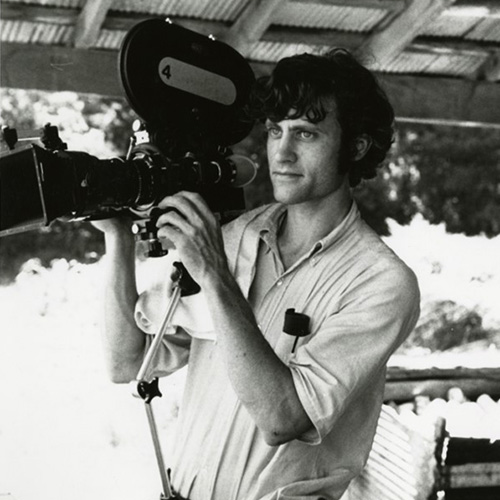
William “Bill” Ferris
Vicksburg
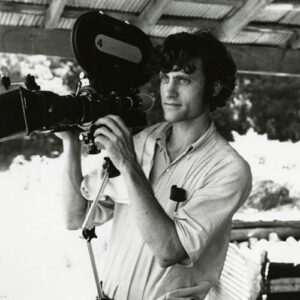
Photo by Hester Magnuson Lorman, Mississippi, at the home of Louis and Annie Dotson C. 1979
William “Bill” Ferris - Folklorist, Author + Educator
Vicksburg, Mississippi
February 5, 1942
William “Bill” Ferris, author, photographer, and scholar (born 1942), has written or produced books, documentaries, and recordings exploring blues music, African American folklore, and Southern culture. A native of Vicksburg, Ferris was founding director of the Center for the Study of Southern Culture at the University of Mississippi and co-edited the Pulitzer Prize-nominee Encyclopedia of Southern Culture, published in 1989. Ferris’s other books include Give My Poor Heart Ease: Voices of the Mississippi Blues and The Storied South: Voices of Writers and Artists. He is a former chair of the National Endowment for the Humanities, nominated by President Bill Clinton for the post. A collection of his documentary recordings and an accompanying book won Grammy Awards in 2019. Lecturing widely and highlighting oral traditions, Ferris has held teaching positions at Jackson State University, Yale University, the University of Mississippi, and the University of North Carolina at Chapel Hill, which houses the William R. Ferris Collection.
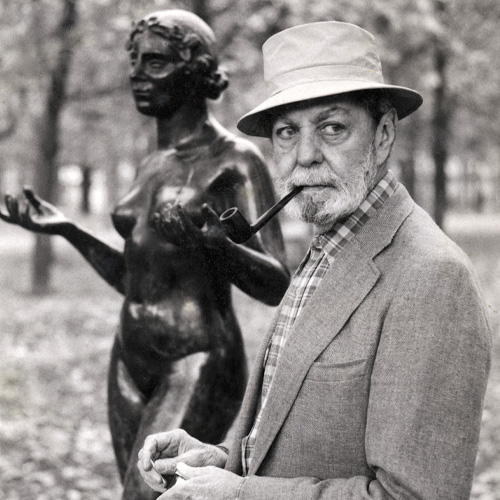
Shelby Foote
Greenville
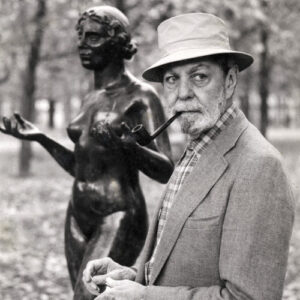
Photo © Huger Foote Courtesy of Huger Foote "Shelby Foote, in Paris, at the Tuileries C. 1998”
Shelby Foote - Historian + Fiction Writer
Greenville, Mississippi
November 17, 1916-June 27, 2005
Historian and novelist Shelby Foote (1916-2005), a Greenville native, spent decades researching and writing the acclaimed three-part book series The Civil War: A Narrative. He claimed wide public attention due to commentary in the acclaimed 11-hour Ken Burns PBS documentary on the Civil War, which aired in 1990. He was a close associate of Walker Percy, another fiction writer from Greenville, and Delta society figured large in his fiction. A journalist and short story writer early in his career, Foote was admired by William Faulkner and other literary figures. He departed from many history scholars in his focus on storytelling and shunning of academic footnotes. Foote’s other books included Shiloh, a novel offering a vivid re-creation of the epic Civil War battle through monologues of soldiers, and Tournament, one of a series of novels set in a fictional Mississippi Delta town.
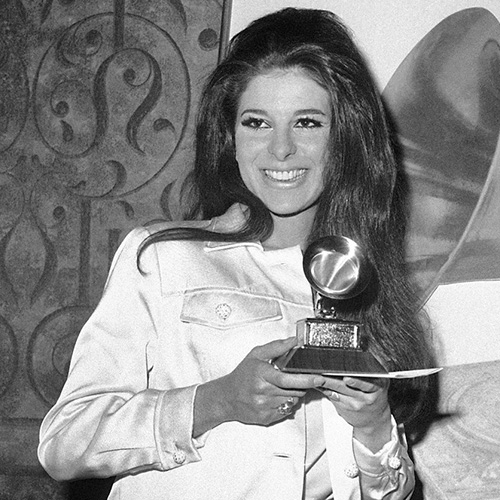
Bobbie Gentry
Woodland
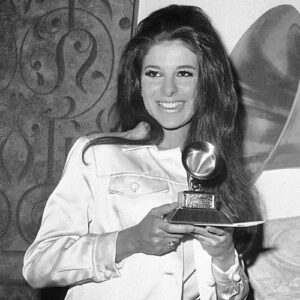
Bobbie Gentry with Grammy awarded for best female vocalist (Associated Press) C. 1968
Bobbie Gentry - Singer + Songwriter
Woodland, Mississippi
July 27, 1942
Singer-songwriter Bobbie Gentry (born Roberta Lee Streeter, 1942), a native of the Woodland area in Chickasaw County, claimed international fame in 1967 with a haunting hit single, “Ode to Billie Joe.” A film character inspired her adoption of the Bobbie Gentry stage name. Gentry, who composed her first song at 7, lived with her father in Greenwood for a few years and moved to Palm Springs, California, as a teenager to live with her mother. She learned to play multiple instruments and gained early live-performance experience in high school. Gentry later studied at the Los Angeles Conservatory of Music. She released a series of albums on Capitol Records, including one with Glen Campbell, and appeared in television specials. Gentry won three Grammy and two Academy of Country Music awards. Her final public performance came in 1981. Gentry soon after ceased public appearances, but she remained a powerful music-world influence.

Mac McAnally
Belmont

Press Photograph Courtesy of TKO Artist Management
Mac McAnally - Musician, Singer + Songwriter
Belmont, Mississippi
July 15, 1957
Singer, songwriter, and producer Mac McAnally (born Lyman Corbitt McAnally Jr., 1957) has recorded a string of albums and singles. His singles made the Billboard Hot 100 and Hot Country Songs lists, often exploring themes related to family or place. A native of Red Bay, Alabama, McAnally grew up in Belmont, Mississippi, and began playing piano and singing in church. As a teenager, he worked as a studio musician in Muscle Shoals, Alabama, before becoming a respected singer-songwriter in Nashville. More confident as a guitar player than a singer, McAnally wrote hit songs recorded by major country music acts ranging from Kenny Chesney (“Back Where I Come From”) to Alabama (“Old Flame”). Between 1977 and 2020, he released more than 15 albums. McAnally was a guitarist in Jimmy Buffett’s Coral Reefer Band and, while pursuing his own music projects, collaborated with Buffett in recording and songwriting. The Country Music Association has repeatedly named him Musician of the Year.

Natasha Trethewey
Gulfport

Photo by Nancy Crampton Courtesy of Harper Collins Publishers C. 2012
Natasha Trethewey- Author, Poet + Educator
Gulfport, Mississippi
April 26, 1966
Gulfport native Natasha Trethewey (born 1966), a poet who explores race and Deep South culture issues, is a former Poet Laureate for the United States and Mississippi. Trethewey turned to poetry to make sense of the murder of her mother when Trethewey was 19. Combining traditional forms and free verse in her writings, she gained recognition in 2000 by releasing her first book, Domestic Work. The collection, which delves into the lives of African American women and men in the South, received the inaugural Cave Canem Prize, honoring the first published book by a Black poet. Trethewey won the Pulitzer Prize in Poetry in 2007 for Native Guard, which tells the story of an all-Black Union Army unit composed of former slaves during the Civil War. Other works include Bellocq’s Ophelia and Beyond Katrina: A Meditation on the Mississippi Gulf Coast. A longtime creative writing and poetry professor, Trethewey has held posts at Northwestern and Emory universities.
2022 Hall of Fame Honorees
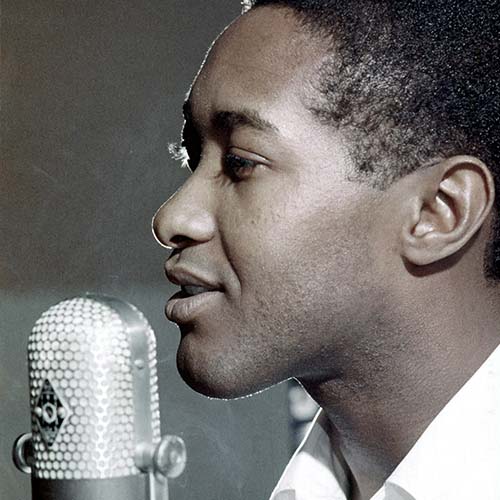
Sam Cooke
Clarksdale
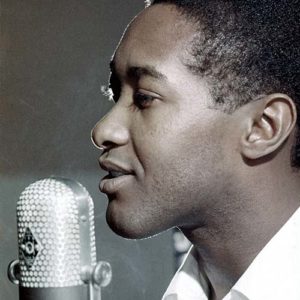
Sam Cooke, Musician
Clarksdale, Mississippi
January 22, 1931-December 11, 1964
Sam Cooke was a trailblazing recording artist who helped shape the soul and pop scene with hits like "Cupid," "Chain Gang," and "Everybody Loves to Cha Cha Cha." Forging a link between soul and pop, Cooke had a diverse repertoire that attracted both black and white audiences.
Born in Clarksdale Mississippi, Cooke grew up in Chicago as the son of a minister. In 1948, just out of high school, he joined the gospel group the Soul Stirrers, and six years later began to branch out into secular music.
Cooke released his first number one single, "You Send Me," in 1957 and continued to top the charts with hits like "Wonderful World," "Twistin' the Night Away," "Bring It on Home to Me," and "A Change is Gonna Come" (released posthumously). He was inducted into the Rock & Roll Hall of Fame in 1986.
Cooke died in 1964 and left behind a tremendous musical legacy.
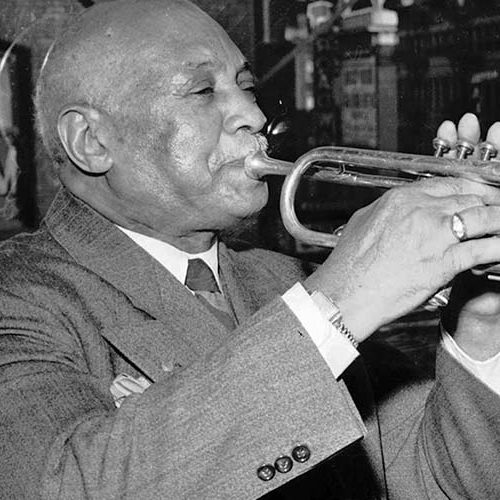
W.C. Handy
Clarksdale
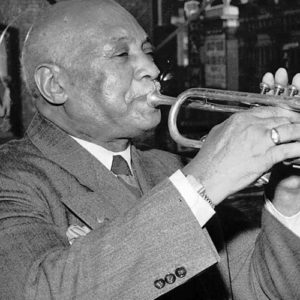
W.C. Handy, Musician
Clarksdale, Mississippi/Florence, Alabama
November 16, 1873-March 28, 1958
William Christopher Handy was an African American composer and a leader in popularizing blues music in the early 20th century.
Handy's contributions in shaping what would be called the blues were influenced by the African American musical folk traditions that he experienced during his travels and performances. After years on the road, Handy settled in Clarksdale, Mississippi, in 1903, where he immersed himself in the local variation of the blues.
After a move to Memphis, Handy wrote and published the first commercially successful blues song, "Memphis Blues," in 1912, followed by his most famous composition, "The St. Louis Blues," in 1914. He worked steadily in the '20s, '30s, and '40s, promoting the blues, composing dozens of songs, and authoring an autobiography.
He is often referred to as the Father of the Blues. His legacy lives on through the annual W.C. Handy Music Festival in Florence, Alabama.

Marty Stuart
Philadelphia

Marty Stuart
Philadelphia, Mississippi
September 30, 1958
Grammy Award-winning country music artist Stuart got his start performing with Lester Flatt and Johnny Cash before launching a successful solo career.
One of country music's most versatile musicians, Stuart is an eclectic artist, moving among honky-tonk, rockabilly, country rock, traditional country, western music, gospel, and bluegrass. He easily balances the various sides of his musicality, with his love of country music's past and present serving as a common bond.
Throughout his career, Stuart has performed and recorded with a litany of artists - Earl Scruggs, Travis Tritt, Merle Haggard, Willie Nelson, and B.B. King, to name just a few.
Stuart is an accomplished photographer and an avid collector of country music memorabilia. He has won Grammy Awards and CMA Awards and was inducted into the Country Music Hall of Fame in 2021. Stuart currently tours with his band, The Fabulous Superlatives.
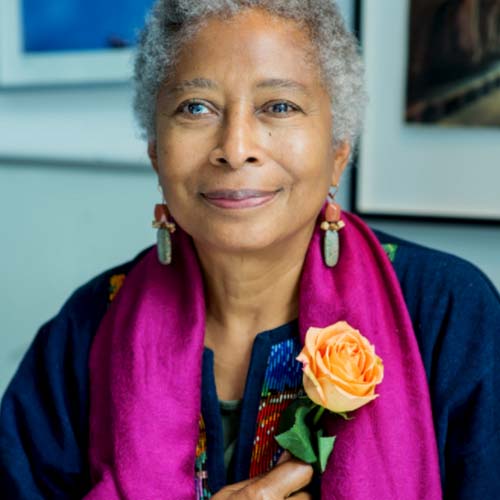
Alice Walker
Jackson

Alice Walker
Jackson, Mississippi / Eatonton, Georgia
February 9, 1944
Born to sharecropper parents in Eatonton, Georgia, Walker is a novelist, essayist, poet, and activist. Her works focus on African American culture, and particularly on women.
After graduation from Sarah Lawrence College, Walker moved to Jackson, Mississippi and became involved in the civil rights movement. She accepted a teaching position at Jackson State University and a writer-in-residence position at Tougaloo College and remained in Mississippi until 1971.
Walker's career as a writer took off with the publication of The Color Purple. The novel won the 1983 Pulitzer Prize for Fiction and was adapted for the big screen, garnering 11 Academy Award nominations. She has received multiple other awards including a National Book Award for Fiction, a Guggenheim Fellowship, and the LennonOno Grant for Peace.
Her commitment to important causes and her talent as a gifted writer have placed her among an elite group of legendary authors of our time
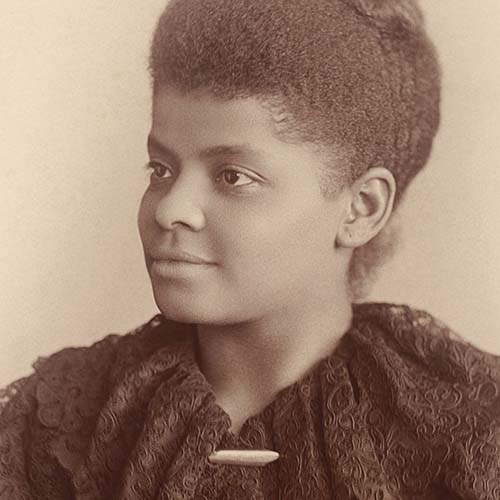
Ida B. Wells
Holly Springs
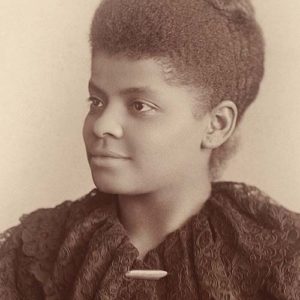
Ida B. Wells
Holly Springs, Mississippi
July 16, 1862-March 25, 1931
Ida B. Wells was an African American journalist, abolitionist, and feminist who led an anti-lynching crusade in the United States in the 1890s.
James Wells, her father, helped start Shaw University (now Rust College), a school for newly freed enslaved people in Holly Springs, Mississippi. It was at Shaw that Wells received her early education.
Wells wrote about race and politics in the South while working as a journalist and publisher. A lynching in Memphis in 1892 led her to begin an anti-lynching campaign. She researched and reported on lynchings, published an examination of lynchings in America, and led a protest in Washington, D.C., calling for reforms. She helped establish several civil rights and women's rights organizations, including the National Association of Colored Women's Clubs and the NAACP.
In 2020, Wells was awarded a Pulitzer Special Citation "for her outstanding and courageous reporting on the horrific and vicious violence against African Americans during the era of lynching."
Wells left a legacy of social and political heroism - she fought against prejudice, no matter what potential dangers she faced.
2019 Hall of Fame Honorees
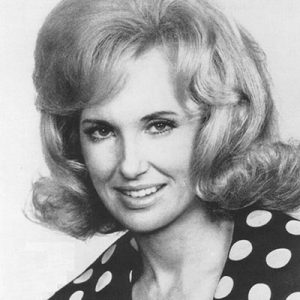
Tammy Wynette
Tremont
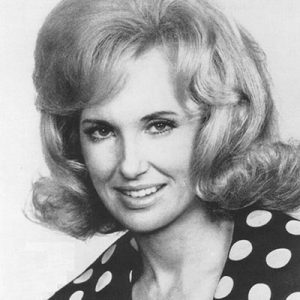
Tammy Wynette (Tremont, MS) was a country singer and songwriter. Called the First Lady of Country Music, she is among country music's best-known and best-selling female singer-songwriters. Her iconic hit "Stand By Your Man" is one of the best-selling singles in the history of country music. She was named by CMT as one of the three Greatest Women of Country Music (with Patsy Cline and Loretta Lynn). For nearly two decades, Wynette held the record for winning consecutive Female Vocalist of the Year awards from the Country Music Association (CMA). She was the first female country artist to sell a million albums and is in the Country Music Hall of Fame.
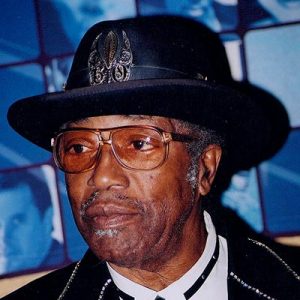
Bo Diddley
McComb
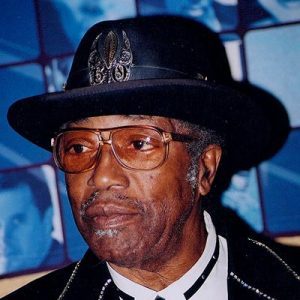
Bo Diddley (McComb, MS) was a singer, songwriter, guitarist, and producer who played a key role in the transition from the blues to rock and roll. His signature rhythms became a cornerstone of modern hip-hop, rock, and pop music. Many artists have named him as a musical inspiration including Elvis Presley, The Beatles, and the Rolling Stones. He is a Grammy winner, and a member of the Rock & Roll Hall of Fame, Rockabilly Hall of Fame, and Blues Hall of Fame. He received a Lifetime Achievement Award from the Rhythm & Blues Foundation. One of Diddley’s musical inspirations was John Lee Hooker, also a 2019 honoree.

Jerry Lee Lewis
Nesbit

Jerry Lee Lewis (Nesbit, MS) is a singer-songwriter and pianist and known as a pioneer of rock and roll and rockabilly music. He developed his signature musical style during his younger years in Mississippi as part of the new and emerging rock and roll movement. His most iconic hits include “Whole Lotta Shakin’ Goin’ On” and “Great Balls of Fire.” Lewis began his career at Sun Records (Memphis) and became one of Rolling Stone magazine’s 100 Greatest Artists of All Time. He is a Grammy winner and recipient of the Grammy Lifetime Achievement Award and has been honored with a star on the Hollywood Walk of Fame. He is a member of the Rock & Roll Hall of Fame, Rockabilly Hall of Fame, and Memphis Music Hall of Fame.
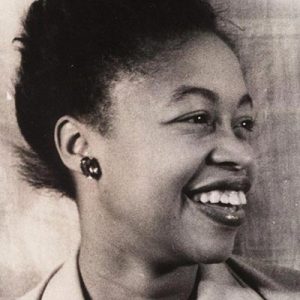
Margaret Walker
Jackson
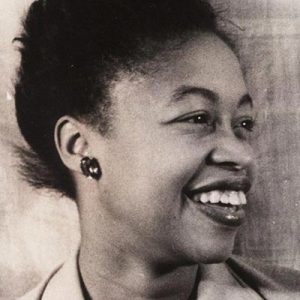
Margaret Walker (Jackson, MS) was a poet and author. She is best known for her 1966 novel Jubilee and her award-winning poem “For My People,” written as part of her involvement in the Chicago Black Renaissance, an African American literary movement. For 30 years, she served as a literature professor at Jackson State University, where she founded the Institute for the Study of the History, Life, and Culture of Black People (now the Margaret Walker Center) and served as the institute’s director. She is also the namesake for the Jackson Hinds Library System’s Margaret Walker Alexander Library. Her works are considered among the most influential and important in African American literature. She received a Candace Award from the National Coalition of 100 Black Women in 1989.
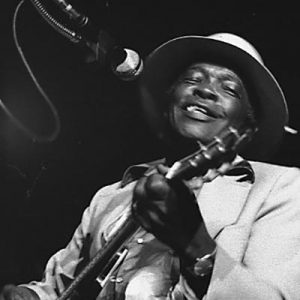
John Lee Hooker
Clarksdale
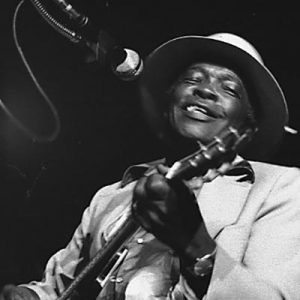
John Lee Hooker (Clarksdale, MS) was a blues singer, songwriter, and guitarist. The son of a Delta sharecropper, Hooker developed a unique style of guitar playing prominently featured in some of his best-known songs such as “One Bourbon, One Scotch, One Beer” and “Boom Boom.” Hooker is a five-time Grammy Award winner and an inductee in both the Blues Hall of Fame and the Rock & Roll Hall of Fame. He has a star on the Hollywood Walk of Fame. He was awarded the Grammy Lifetime Achievement Award in 2000.
2018 Hall of Fame Honorees
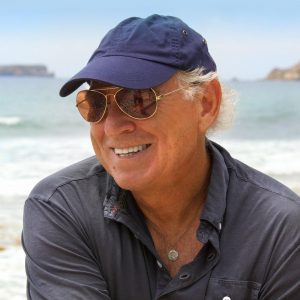
Jimmy Buffett
Pascagoula
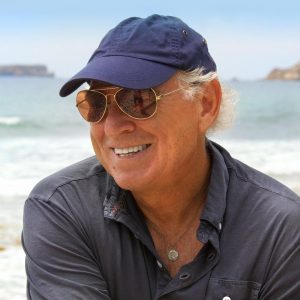
"Go fast enough to get there, but slow enough to see."
– Jimmy Buffett
Jimmy Buffett was born on Christmas Day 1946 in Pascagoula – or as he said, about as far south as one can get without getting your feet wet. As a student at The University of Southern Mississippi, he joked that he began playing guitar to meet women.
Since the late 1960s, he has built a worldwide legion of fans devoted to his tropical lifestyle and the art of leisure. His music represents the ideal of paradise for millions of followers, known as Parrotheads.
After recording an album and struggling as a country singer in Nashville, Buffett moved to Key West, Florida, where he crewed on fishing boats during the day and played for drinks at night.
A White Sport Coat and a Pink Crustacean (1973), recorded in Nashville, marked the beginning of his cult following. Buffett’s music defies easy categorization – bridging country, folk, rock, and pop. After Changes in Latitudes, Changes in Attitudes (1977) went platinum, Buffett remained in the limelight with a steady string of best-selling albums and Top 40 hits. And he’s not slowing down.
Often likened to followers of the Grateful Dead, Parrotheads are fanatically devoted fans organized into hundreds of formal and informal groups. Young fans are known as Parakeets.
Singer, songwriter, author, sailor, pilot, entrepreneur, activist, impresario – Buffett is constantly on the move. His awards include two Grammy nominations and induction into the Nashville Songwriters Hall of Fame.
With over 50 albums, several best-selling books, and a string of successful brands, he is among the best-known musicians in the world.

William Eggleston
Sumner

"I had this notion of what I called a democratic way of looking around, that nothing was more or less important."
– William Eggleston
William Eggleston changed how the world viewed photography. People thought a photograph could be artistic only if it was black-and-white and captured something important or beautiful. Not Eggleston. He showed us that a color photo could be as profound as poetry.
Eggleston was born in Memphis, Tennessee, and raised in Sumner, Mississippi. Sidelined by asthma as a child, he spent most of his time indoors, drawing and experimenting on the piano.
At 10 years old, Eggleston received a Kodak Brownie camera and started photographing his beloved dog. But the Brownie’s grainy results disappointed him. He wouldn’t use a camera again for a decade.
Eggleston picked up a camera again in college and was hooked. He majored in art at Ole Miss, discovered the street photographs of Henri Cartier-Bresson – master of the “decisive moment” – and decided his own future: photography.
In the mid-'60s, he started taking pictures in color, something considered off-limits for serious artists. To Eggleston, anything with bold color was photo-worthy and art-worthy: tricycles, girls at diners, even a ceiling.
By the late '70s, Eggleston’s color photographs had impressed curators nationwide. They began devoting whole museum exhibits to his work. And visitors started believing that color photos belonged on white gallery walls.
Eggleston paved the way for color photographers, and he continues to influence photographers, filmmakers, and musicians alike. Everyone sees just a bit better through Eggleston’s lenses.
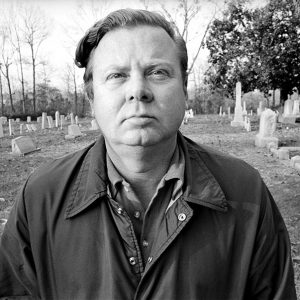
Willie Morris
Yazoo City

“It took me years to understand that words are often as important as experience because words make experience last.”
– Willie Morris
A brilliant writer, editor, journalist, and teacher, Willie Morris created stories that channeled his experiences growing up in rural Mississippi into works of art that appealed to diverse audiences.
Morris was born in Jackson, and his family moved to Yazoo City when he was a baby. His love of literature and talent for storytelling emerged at an early age.
After a couple of years at the University of Texas, Morris found his groove, excelling as editor of the school newspaper despite making enemies in the administration. His talent and achievements landed him a Rhodes scholarship to study in England.
By 1963, Morris was an editor at Harper’s Magazine – the pinnacle of the highbrow literary world. He became editor-in-chief in 1967, the same year he released his best-selling autobiography, North Toward Home. His appeal was not limited to the literary elite; books such as Good Old Boy (1971) and My Cat Spit McGee (1998) appealed to all ages.
Morris began teaching at the University of Mississippi in 1980. John Grisham and Donna Tartt were among those who honed their craft in his legendary writing classes.
My Dog Skip (1995), a reminiscence of childhood, became a major motion picture. Morris saw an advance screening shortly before he died of a heart attack in 1999.
Equally comfortable with fiction, nonfiction, and memoir, Morris wrote both serious and lighthearted stories. Common themes include the intersection of past and present, tensions between regional and national identities, and the sense of wonder associated with childhood.
Above: Willie Morris in the College Hill Cemetery in Lafayette County, Mississippi, in January 1980.
Photo/© David Rae Morris. All rights reserved. From the series/exhibit "Letters From My Father."
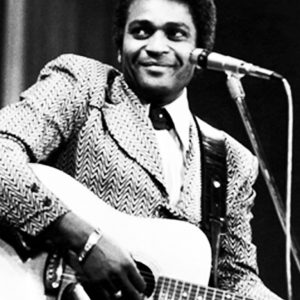
Charley Pride
Sledge

“There were no guarantees that country music, whose roots were in the South, were ready for [me].”
– Charley Pride
Charley Pride was among the most successful country musicians of all time. Scoring 29 number-one country hits between the '60s and '80s, he bridged the color divide and proved that country music is open to everyone.
Pride was born on a 40-acre sharecropper farm in Sledge. Every week, his father tuned in to the country radio program the Grand Ole Opry. It became the soundtrack to Pride’s childhood.
He loved country music, but as a talented athlete, he saw a future in baseball – one with clear role models, like Jackie Robinson. Pride practiced hard and made it to the Negro American League and Major League Baseball's minor leagues.
Pride started singing on the side – anywhere with a microphone. Audiences fell in love with him, and two local country musicians encouraged him to chase a new dream. They sent him packing to Nashville.
One demo tape changed his life forever. In Nashville, famed guitarist and RCA executive Chet Atkins heard a demo of Pride singing. He convinced other RCA bigwigs to sign Pride to the label. And Pride’s career blasted off.
Pride’s songs started dominating the charts. He hooked fans with his deep, rich vocals and mesmerizing personality. By 1971, he was voted the Country Music Association Entertainer of the Year.
Pride became a top-selling RCA artist, second only to Elvis. He sold more than 70 million records in a career spanning six decades.
Pride’s connection with audiences was legendary. Fans went wild for his wit and warmth in concert … and, of course, that iconic voice – unchanged for 60 years.
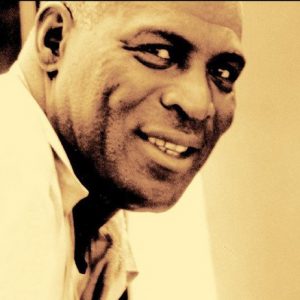
Howlin' Wolf
White Station

“The scariest ... bit of male testosterone I've ever experienced.”
– Bonnie Raitt
Wolf got his nickname from the bedtime stories his grandfather told about the Big Bad Wolf – and he was as persistent as the howl in his name. The Father of the Blues, Charley Patton, taught him guitar tricks, and country-blues icon Jimmie Rodgers introduced him to yodeling.
Wolf experimented to find his own voice. He tried careers as a farmer and soldier, but they left him cold. Music lit a fire in him. He moved from Ruleville, Mississippi, out to Chicago to hit the big time. Almost instantly, two top record labels started fighting over him. Chess Records won out and signed him, and Wolf took Chicago by storm.
The Rolling Stones, who had covered some of Wolf’s songs, arranged for him to appear on TV in England. It was the first time any Mississippi Delta blues artist appeared in Europe. But certainly not the last.
Wolf mesmerized audiences with his soul-stirring performances, blending electric blues with country. He helped usher in the era of rock and roll, and his howl set the stage for rockers’ cries everywhere.
2017 Hall of Fame Honorees
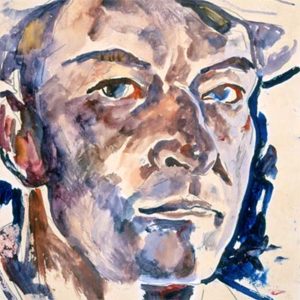
Walter Inglis Anderson
Ocean Springs

"Our lives improve only when we take chances – and the first and most difficult risk we can take is to be honest with ourselves."
– Walter Inglis Anderson
Walter Inglis Anderson was born in New Orleans in September 1903, but would call the Mississippi Gulf Coast home for most of his life. He studied art at New York’s Parsons School of Design, and in Philadelphia at the Pennsylvania Academy of the Fine Arts, and won a scholarship to study in France.
In 1941, he moved with his family to Oldfields, the family home of his wife, Agnes "Sissy" Grinstead, in Gautier, Mississippi. This was one of his most prolific periods, as he drew inspiration from his children and the fairy tales they loved, carving block prints and illustrating some of his favorite novels.
The Anderson family returned to Ocean Springs in 1947. Anderson spent much of his time isolated in his cottage studio and on the uninhabited barrier islands of the Mississippi coast. He immersed himself in nature – creating thousands of works portraying the area’s flora and fauna.
After his death in November 1965, Anderson’s family discovered a treasure of artworks hidden away in his cottage. His art went virtually unnoticed during his lifetime. Today, he is considered by many to be the South’s greatest visual artist. You can learn more about Walter Anderson and view his fascinating body of work at the Walter Anderson Museum of Art in Ocean Springs.
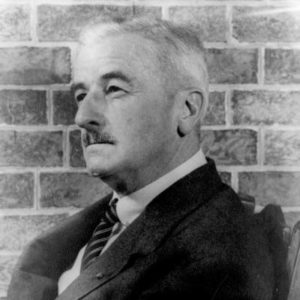
William Faulkner
New Albany | Oxford

"To understand the world, you must first understand a place like Mississippi."
– William Faulkner
Born in September 1897, William Faulkner grew up in Oxford but left to join the U.S. Army, only to be declared 4-F. He changed the spelling of his name from Falkner to Faulkner, fabricated his place of birth, and enlisted in the Canadian arm of the British Royal Air Force. After World War I ended before he saw combat, he returned to Oxford to attend the University of Mississippi.
Faulkner left the university after a year and eventually found his way to Hollywood, where he worked as a screenwriter on films such as The Big Sleep and To Have and Have Not. After extensive travels, he returned home.
In 1949, Faulkner received the Nobel Prize for Literature “for his powerful and artistically unique contribution to the modern American novel.” The Sound and the Fury; As I Lay Dying; Absalom, Absalom!; Light in August; and numerous other works depicted the decay and decadence of the American South and exemplified his employment of stream-of-conscious writing. He is the only Mississippian to win the prize. He was also a two-time Pulitzer Prize winner.
He is one of America’s and the world’s most revered authors. His works are studied in high school and university classrooms, and his books adorn shelves in countless libraries and homes.
Faulkner died in July 1962.

Morgan Freeman
Charleston

“My approach to acting is that I am totally intuitive. I read the script and I get it. If I don’t get it, I can’t do it.”
– Morgan Freeman
Actor Morgan Freeman was born in Memphis, Tennessee, in June 1937 and spent part of his childhood in Charleston, Mississippi. From early on, it was clear that he had a natural talent for acting. However, Freeman delayed his career until after a stint in the U.S. Air Force.
After serving in the Air Force, Freeman moved to Hollywood looking for acting opportunities. He soon left California for New York City, where he landed a part in an all-African American production of Hello, Dolly!.
National exposure for Freeman followed in 1971, when he began appearing on the children’s television show The Electric Company. In 1987, he was cast in the film Street Smart, earning an Academy Award nomination for Best Supporting Actor. He earned another Academy Award nomination and won a Golden Globe Award for his performance as Hoke in Driving Miss Daisy, a role he reprised from the original off-Broadway stage play. His performance in Million Dollar Baby earned him an Academy Award and a Screen Actors Guild Award in 2005. He portrayed Nelson Mandela in Invictus, earning yet another Academy Award nomination in 2010. Freeman was also awarded the Golden Globe Cecil B. DeMille Award and the National Medal of Arts.
Freeman’s other films include Unforgiven, The Shawshank Redemption, Seven, and the Dark Knight Batman trilogy.

John Grisham
Southaven | Oxford

“I always try to tell a good story, one with a compelling plot that will keep the pages turning.”
– John Grisham
John Grisham was born in Jonesboro, Arkansas, but eventually settled in Southaven, Mississippi with his family. He studied accounting at Mississippi State and earned his law degree at Ole Miss. Grisham would spend nearly a decade practicing law and served in the Mississippi House of Representatives from 1984–1990.
In the courthouse in DeSoto County, Grisham overheard the testimony of a young rape victim and was inspired to write a novel exploring what would have happened if the girl’s father had sought revenge. This became his first novel, A Time to Kill, published in 1989. His next novel, The Firm, was one of the bestselling novels of 1991, spending 47 weeks on the New York Times bestseller list.
The success of Grisham’s following novels, The Pelican Brief and The Client, which were adapted to film, solidified his position as a master of the legal thriller. Other film adaptations include The Rainmaker, The Chamber, and Runaway Jury. In 2003, one of his rare nonlegal novels, A Painted House, became a Hallmark Hall of Fame film, which Grisham narrated.
Currently, over 300 million John Grisham books are in print worldwide, translated into over 40 languages. His writing has earned him a Peggy V. Helmerich Distinguished Author Award and two Harper Lee Prizes for Legal Fiction.

Jim Henson
Leland

“As children, we all live in a world of imagination, of fantasy, and for some of us that world of make-believe continues into adulthood.”
– Jim Henson
The Muppets. Labyrinth. Emmet Otter’s Jug-Band Christmas. What do all of these have in common? Each sprang from the imagination of Jim Henson, who was born in September 1936 in Greenville and spent much of his childhood in Leland.
From a young age, Henson felt pulled to the arts. In his freshman year of college, his local TV series Sam and Friends gave birth to an early version of Kermit the Frog. In 1969, Henson began working for Sesame Street, for which he created beloved characters such as Big Bird, Bert and Ernie, and Oscar the Grouch.
His biggest claim to fame, however, came in 1976 with the premiere of The Muppet Show. During its five-year run, the show reached 235 million viewers in over 100 countries and earned four Emmys. Its success led to spin-offs such as The Muppet Movie and Jim Henson’s Muppet Babies, which earned four consecutive Emmys for Outstanding Animated Program.
In the 1980s, Henson created the series Fraggle Rock and developed new characters and techniques. His final completed project was Jim Henson’s Muppet*Vision 3D in the Disney parks in California and Florida.
Jim Henson died in May 1990. In 1991, he was inducted into the Hollywood Walk of Fame; Kermit’s induction followed in 2002. Disney released The Muppets in 2011, a film which introduced Henson’s characters to a whole new generation.
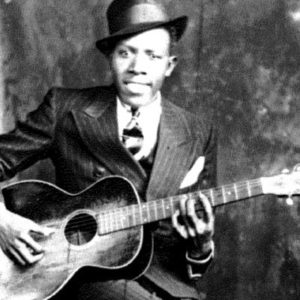
Robert Johnson
Hazlehurst

"I dabbled in things like Howlin' Wolf, Cream, and Led Zeppelin, but when I heard ... Robert Johnson, it blew my mind. It was something I'd been missing my whole life. That music made me discard everything else and just get down to the soul and honesty of the blues."
– Jack White
One of the greatest blues performers of all time, Robert Johnson has become known as the King of the Delta Blues Singers.
He was born in Hazlehurst in May 1911, but not much is known about Johnson’s life. It is known that around 1936, he went to Jackson to seek out a talent scout, resulting in two recording sessions that yielded the 29 songs that are the basis for his career. Johnson traveled across the country playing wherever he could.
Mystery and myth surround his life. According to legend, he took his guitar to the crossroads of Highways 49 and 61 and made a deal with the devil: amazing guitar ability in exchange for his soul.
Johnson died in August 1938. His music later came to the attention of many during the 1960s and again in the 1990s, when a collection of his work was released, selling more than a million copies and winning a Grammy for Best Historical Album. He was a member of the inaugural classes of both the Blues Hall of Fame and the Rock & Roll Hall of Fame. Four of his songs are on the Rock & Roll Hall of Fame’s list of “500 Songs That Shaped Rock and Roll.” In 2010, he was ranked fifth on Rolling Stone’s list of the “100 Greatest Guitarists of All Time.”
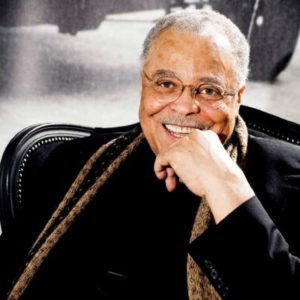
James Earl Jones
Arkabutla

"I was as content Off-Broadway as I was in a big Hollywood movie, and, I just try to be content wherever I am, you know."
– James Earl Jones
With a career that spans over 60 years, James Earl Jones is one of film’s most recognizable actors.
Jones, born in January 1931 in Arkabutla, began his career on stage, performing in numerous Shakespeare productions. His Broadway debut came with a role in Sunrise at Campobello in the late 1950s. It was in 1968 that he was cast in his breakout role of boxer Jack Jefferson in the stage production of The Great White Hope, earning him his first Tony. He reprised the role two years later in the film version of the play, earning an Academy Award nomination for Best Actor and a Golden Globe Award for Best New Star of the Year.
Jones performed in numerous Broadway shows throughout the '70s and '80s, winning a second Tony for his performance in Fences. On television, he won an Emmy for his role in Gabriel’s Fire and another for his supporting role in Heat Wave, making him the first actor to win two Emmys in the same year within the same drama category.
More success came with roles in dozens of films, including Field of Dreams and Coming to America. Jones has lent his distinctive basso profundo voice to Darth Vader in the original Star Wars, and in various sequels, prequels, and spin-offs, including Rogue One: A Star Wars Story. He has also voiced Mufasa in Disney’s The Lion King and its 2019 CGI/live-action remake.
Throughout his career, many accolades have been bestowed upon Jones, including a Kennedy Center Honor, an honorary Academy Award, and the Voice Arts Icon Award.
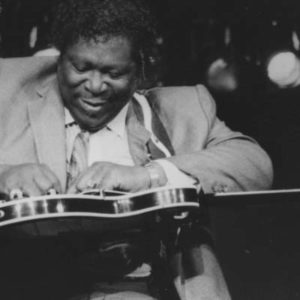
B.B. King
Itta Bena

"Blues is a tonic for whatever ails you. I could play the blues and then not be blue anymore."
– B.B. King
The name B.B. King is synonymous with the blues. Born in Itta Bena in September 1925, in his younger days, Riley B. King worked on a cotton plantation, earning barely over $20 a week, and played music on street corners for change.
After serving in World War II, B.B. King moved to Memphis to pursue his dream. His big break came when he performed on Sonny Boy Williamson’s radio show in 1948, a performance which led to a 10-minute spot on the WDIA radio station. “King’s Spot” became so popular that it was expanded and renamed the “Sepia Swing Club.” This led to his famous nickname, as he went from being called Beale Street Blues Boy to Blues Boy King and, finally, B.B. King. King and Lucille, as he called his beloved Gibson guitars, toured nationally after “Three O’clock Blues” became a number-one hit.
King played everywhere from juke joints to concert halls to international venues. In 1980, he was inducted into the Blues Hall of Fame, and in 1987 into the Rock & Roll Hall of Fame. That same year, he was awarded the Grammy Lifetime Achievement Award.
Through the years, B.B. King continued to tour, age and time never diminishing his passion for the blues. By the time he died on May 14, 2015, he had earned 15 Grammy Awards and released over 50 albums, the contents of which define blues music as we know it.
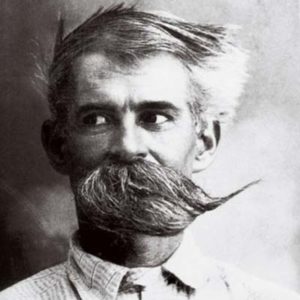
George Ohr
Biloxi

“I’m making pottery for art’s sake, God’s sake, the future generation, and – by present indications... for my own satisfaction”
– George Ohr
George Ohr, a child of German immigrants, was born in Biloxi in July 1857. At the age of 14, he moved to New Orleans, where he worked at a multitude of odd jobs, including apprentice potter.
Returning to Biloxi, Ohr built a pottery shop. It soon became a popular tourist attraction. The “Mad Potter of Biloxi” who crafted wildly eccentric pottery drew fascinated crowds.
In 1894, a fire destroyed Ohr’s shop. He gathered up his charred pottery and built a new shop, Biloxi Art Pottery Unlimited. His unique pottery was in stark contrast to the beige, controlled Victorian pottery that was popular at the time. While many found the pottery intriguing, Ohr’s wild works – and their prices – prevented him from obtaining profit and recognition.
In 1909, Ohr retired, and his shop became Biloxi’s first auto repair shop. Nine years later, he died from cancer. Fifty more years passed, and James W. Carpenter, a New Jersey antiques dealer, discovered the pottery in the Ohr Boys’ Auto Repair Shop. He purchased the entire collection for $50,000. As the pieces came into the market, they were sold for thousands of dollars, and art historians began to reevaluate the importance of Ohr’s work.
Today, Ohr has received the recognition he always dreamed of and is considered a cult figure in the art world.
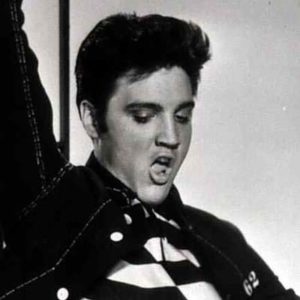
Elvis Presley
Tupelo

“Before Elvis, there was nothing.”
– John Lennon
From an early age, Tupelo’s Elvis Presley had a great interest in music, influenced by the pop and country hits of the day, gospel songs he would hear at church, and R&B music performed on Beale Street (his family moved to Memphis in 1948).
In 1954, Presley’s musical career was launched when he recorded a song with Sun Records. It took only two years for the young singer to become an international sensation. He released “Heartbreak Hotel” and made his film debut in Love Me Tender in 1956. He would go on to star in 33 films.
The way Presley sang, performed, and challenged social and racial barriers made him the leading figure of rock and roll music. He helped to pave the way for not only a new era of American music, but also a new era of popular culture. He was The King.
He received 14 Grammy nominations, three Grammys, and the Grammy Lifetime Achievement Award, and he was featured in the first globally broadcast concert.
In August 1977, at the age of 42, Elvis Presley died in his Memphis home, Graceland. But death did not diminish his influence. He has been inducted into numerous halls of fame, has sold over 1 billion records globally, and is recognized as one of America’s most influential and important icons.
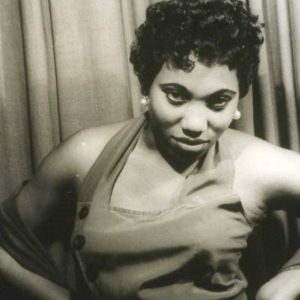
Leontyne Price
Laurel

“The power and sensuousness of Leontyne’s voice were phenomenal – the most beautiful Verdi soprano I have ever heard.”
– Placido Domingo
When Laurel native Leontyne Price was a girl, she attended a recital in Jackson by Marian Anderson and realized that she wanted to be an opera singer. Years later, she attended the College of Education and Industrial Arts in Ohio, then headed to New York City to attend the Juilliard School on a full scholarship.
In 1952, Price debuted on Broadway as St. Cecilia in the revival of Four Saints in Three Acts. Immediately following, she was cast in a production of Porgy and Bess, dazzling audiences with her flawless vocals. She starred in the NBC Opera Theatre’s televised production of Tosca, making her the first African American in a leading role in a televised opera. Two years later, she had her opera stage debut with the San Francisco Opera.
Price toured Europe and wowed audiences at venues such as Covent Garden in England and La Scala in Milan. She made her debut at the New York City Metropolitan Opera House in 1961, marking the beginning of her residency as one of the opera’s principal sopranos. She was widely regarded as the first African American singer to gain an international reputation in opera.
Price delivered her farewell performance at the Met in 1985, hailed as one of the most successful operatic performances in the Met’s history. Price’s talent earned her numerous awards, including the Presidential Medal of Freedom, 13 Grammys, and numerous honorary degrees.

Jimmie Rodgers
Meridian

"Jimmie Rodgers, of course, is one of the guiding lights of the 20th century, whose way with song has always been an inspiration to those of us who have followed the path."
– Bob Dylan
Born in Meridian in September 1897, Jimmie Rodgers – known as the Father of Country Music, the Singing Brakeman, and the Blue Yodeler – learned to sing at church and taught himself to play guitar. At the age of 14, he started working as a water boy for his father’s railroad crew, spending the next 12 years of his life working on the railroad.
In 1924, Rodgers contracted tuberculosis and turned his attention to music. He joined the Tenneva Ramblers in 1927; a talent scout offered them a recording session. It was here that Rodgers recorded “Sleep, Baby, Sleep,” the solo hit that made him famous.
Rodgers continued to record songs that would become country music classics and rock and roll forerunners. The most popular were his 12 different sequels to the song “Blue Yodel No. 1 (T for Texas).”
In 1933, he traveled to New York to record new songs. During this session, he recorded “Mississippi Delta Blues” and “Years Ago” – his last recordings. On May 26, 1933, Jimmie Rodgers died.
Though his career spanned only six years, Rodgers had a profound, lasting impact. He has been inducted into the Country Music Hall of Fame, the Songwriters Hall of Fame, the Rock & Roll Hall of Fame, and the Blues Hall of Fame. His song “Blue Yodel No. 9” was selected as one of the Rock & Roll Hall of Fame’s “500 Songs that Shaped Rock and Roll,” and Rodgers himself was ranked number 33 on CMT’s 40 Greatest Men of Country Music.

Sela Ward
Meridian

"And so much of my life has been about returning home and longing for home, wanting my children to know about my roots."
– Sela Ward
Meridian native, actress, author, and producer Sela Ward attended the University of Alabama, where she double-majored in fine arts and advertising. After graduating, Ward moved to New York City and began modeling. She later moved to California to pursue an acting career.
Her breakthrough came in 1991 when she was cast in the TV series Sisters. Her performance as free-spirited Teddy Reed earned her a Primetime Emmy for Outstanding Lead Actress in a Drama Series. Ward has also appeared in the TV drama series House and CSI: NY. Her work has earned her numerous awards, including a CableACE, a second Primetime Emmy, and a Golden Globe Award.
Ward has also appeared in films including The Man Who Loved Women, The Fugitive, The Day After Tomorrow, The Stepfather, and Gone Girl.
Ward has made a name for herself not only through acting but also through her activism and philanthropy. In 2000, she developed and produced a documentary, The Changing Face of Beauty, which explored America’s obsession with youth and the effect this obsession has on women. That same year, she founded Hope Village for Children, which provides care to abused or neglected children.
Today, Ward continues her acting career, appearing recently as the President of the United States in the film Independence Day: Resurgence and Margaret Graves in the Epix political comedy Graves.
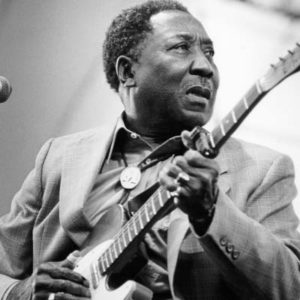
Muddy Waters
Issaquena County

"You get a heck of a sound from the church. Can't you hear it in my voice?"
– Muddy Waters
As a young boy in Issaquena County, McKinley Morganfield loved to play in mud puddles, which earned him the nickname Muddy Waters. He taught himself to play the guitar by listening to the music of Mississippi legends Charley Patton, Son House, and Robert Johnson.
In 1943, Waters moved to Chicago, where his uncle gifted him an electric guitar, an instrument that allowed him to develop his legendary style, combining Mississippi blues with big city vibes. In 1946, he began recording with RCA, Colombia, and Aristocrat (later Chess Records). Songs like “I’m Your Hoochie Coochie Man” and “Got My Mojo Working” won over crowds, and “Rollin’ Stone” became so popular that it would later become the name of both a major music publication and one of the most famous rock bands in history.
Waters continued to record and perform throughout the 1960s and 1970s, earning his first Grammy in 1971 for the album They Call Me Muddy Waters. His last public performance was in 1982, when he sat in with Eric Clapton’s band. He died in April the following year.
By the end of his life, Waters had received seven Grammys (including the Grammy Lifetime Achievement Award) and countless other honors. He was inducted into the Blues Hall of Fame and posthumously into the Rock & Roll Hall of Fame. He received five Blues Foundation Awards, and the Rock & Roll Hall of Fame listed four of his songs among the “500 Songs That Shaped Rock and Roll.”
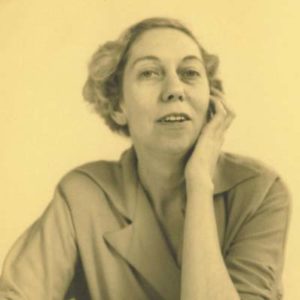
Eudora Welty
Jackson

“The art that speaks [truth] most unmistakably, most directly, most variously, most fully, is fiction.”
– Eudora Welty, On Writing
Neither of Eudora Welty’s parents were originally from the Deep South, which perhaps is what allowed her to later become such a careful observer of Southern life.
Welty spent two years at the Mississippi State College for Women (now Mississippi University for Women) and two years at the University of Wisconsin, graduating with a Bachelor of Arts degree. She also studied advertising at the Columbia Business School in New York.
Welty returned to Jackson in 1931. She began using her experiences as a journalist and photographer for the Works Progress Administration as inspiration for short stories. In 1936, “Death of a Traveling Salesman” was published, and from there, her work continued to garner attention. In 1941, Welty published her first book, a collection of short stories entitled A Curtain of Green. She went on to write critically acclaimed works such as The Golden Apples and The Optimist’s Daughter, for which she won a Pulitzer Prize for Fiction.
Welty’s writing is renowned for its attention to detail, focus on themes of community and relationships, and naturalistic descriptions of Southern life. In 1984, her autobiography, One Writer’s Beginnings, sold over 100,000 copies.
Welty received numerous honors throughout her career, including the National Medal of Arts and the Presidential Medal of Freedom. Eudora Welty died on July 23, 2001, at the age of 92, in her hometown of Jackson.
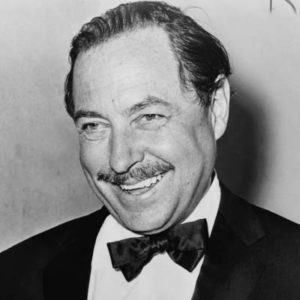
Tennessee Williams
Columbus

"If the writing is honest, it cannot be separated from the man who wrote it."
– Tennessee Williams
Born in March 1911, Thomas Lanier “Tennessee” Williams spent much of his childhood growing up in Clarksdale. He later moved with his family to St. Louis, and from 1929 to 1931 attended the University of Missouri, studying journalism. During his junior year, his father pulled him out of school and put him to work. Williams hated his job and retreated into writing.
At age 28, Williams moved to New Orleans and changed his name to Tennessee. His first play was not a hit, but Tennessee persisted, revising it as Orpheus Descending. It was later was adapted for the cinema as The Fugitive Kind.
On March 31, 1945, The Glass Menagerie opened on Broadway and was hailed by critics and audiences. Two years later, A Streetcar Named Desire opened, followed by Camino Real, Cat on a Hot Tin Roof, and Sweet Bird of Youth. In total, Williams’s work would earn him four New York Drama Critics' Circle Awards, as well as the Presidential Medal of Freedom. In 1979, Williams was inducted into the American Theater Hall of Fame.
Tennessee Williams died in New York City on February 25, 1983. Today, he is considered one of America’s foremost playwrights – remembered for his remarkable characters and honest writing style.

Oprah Winfrey
Kosciusko

"The biggest adventure you can take is to live the life of your dreams."
– Oprah Winfrey
Kosciusko’s Oprah Winfrey had a troubled childhood and adolescence. In her teens, she left for Nashville to live with her father. She enrolled in Tennessee State University in 1971 and began working in radio and television broadcasting.
In the early 1980s, she began hosting AM Chicago. It became a success, leading Winfrey to nationwide fame. A role in the 1985 film The Color Purple followed and earned Winfrey a nomination for an Academy Award.
The Oprah Winfrey Show entered national syndication in 1986 and became the highest-rated talk show in television history. The show was broadcast in more than 100 countries worldwide in its 25 year run. In 1986, Winfrey established Harpo Studios, making her the third woman in the American entertainment industry to own her own studio. Her monthly publication, O, The Oprah Magazine, debuted in 2000. As a producer, she helped give new life to The Color Purple on Broadway in 2005, eventually winning a Tony for Best Revival of a Musical.
Winfrey has received many honors, including the Presidential Medal of Freedom and inclusion among TIME magazine’s “100 Most Influential People in the World” from 2004-2011. In 1994, she was inducted into the National Women's Hall of Fame.
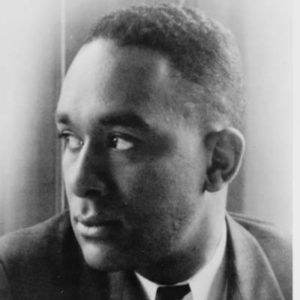
Richard Wright
Natchez

“Whenever my environment had failed to support or nourish me, I had clutched at books.”
– Richard Wright, Black Boy
Although Richard Wright only made it through the ninth grade, he was incredibly intelligent and proved to have a gift with words at a young age. Wright was born in Roxie, near Natchez, in September 1908, later moving to Memphis, where he worked at a series of odd jobs and spent his free time focused on literature.
Wright later moved to New York, where he published a short-story collection, Uncle Tom’s Children. His novel Native Son followed. A stage version was adapted from the novel, and Wright played the lead role in a film version made in Argentina. Black Boy, a novel based on Wright’s own youth, was published in 1945.
In 1947, Wright moved to Paris, where he remained for the rest of his life. He continued to write, creating The Outsider, The Long Dream, and over 4,000 haikus.
Richard Wright died on November 28, 1960, of a heart attack and was buried in the Père Lachaise Cemetery. His works remain some of the most honest accounts of the violence and discrimination toward African Americans during the late-19th and mid-20th centuries. Today, they are considered vital parts of America’s historical, sociological, and literary realms, and they are believed by many to have helped change race relations in the U.S.


